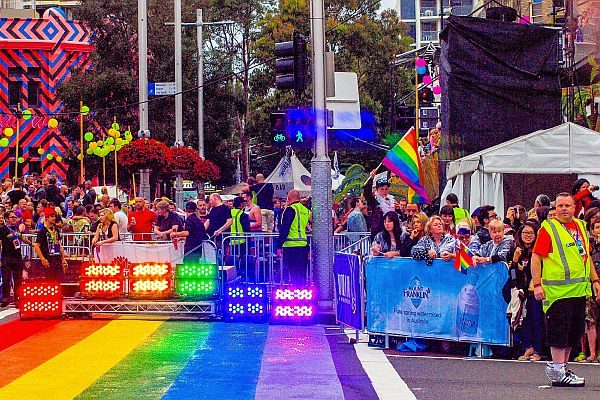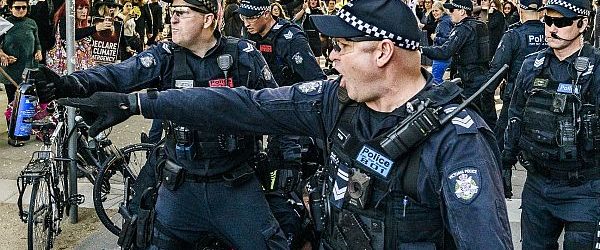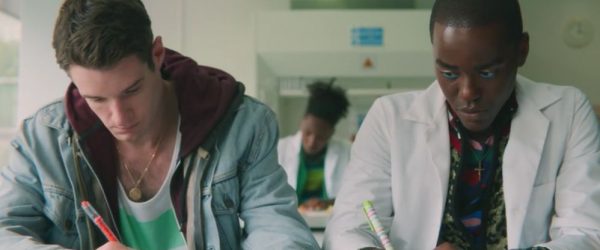August 2014 was my first time going into custody. This was a result of my assaulting police and resisting their arrest as I often didn’t understand why I was being stopped and questioned. After numerous encounters much the same, it became clear I was being profiled and targeted as an Indigenous person and that NSW Police officers took joy in the sport of humiliating minorities from lower socio-economic backgrounds.
Over my life, I have felt dehumanised by society due to my sexual orientation. Incarceration compounded and intensified that dehumanisation.
When I arrived at Silverwater Metropolitan Remand and Reception Centre, I was told ‘you’re just a number here.’ Little did I know that this number, and being reduced to it, would stay with me for the rest of my life.
Prison is brutal and unforgiving. You no longer have a name, identity or culture, and if you are found out to be gay, further humiliation, sexual abuse and harassment are inevitable.
Aboriginal people in Australia are the world’s most incarcerated population. Since our nations were colonised, we have become just 3.3 per cent of people on this land, but we make up nearly a third of the adult prison population. Aboriginal people continue to be killed by the state or die in their custody, with 434 deaths since the 1991 Royal Commission into this crisis. No officer has ever been held criminally responsible for a single one of those 434 deaths.
This year, societies across the world have reflected deeply on what is important in the wake of the #BlackLivesMatter movement. Here in Australia, more and more people have begun to understand the scourge of incarceration and police brutality against Aboriginal people.
As an Aboriginal person who’s been criminalised and incarcerated, I know firsthand the brutality of police. As a gay man, even hearing the words ‘police’ and ‘LGBTQI+ community’ in the same sentence evokes a physical discomfort in me as memories start to flood back.
The Bondi murders of gay men that police covered up. The Western Sydney cops who would go ‘poofter bashing’ for fun. The notorious undercover police squads that would target LGBTQI+ people at meetup places and their homes.
I believe that NSW Police, their associations and NSW Corrective Services should not march in uniforms and have a float at the Sydney Gay and Lesbian Mardi Gras. Mardi Gras has extraordinary cultural significance for our community, and should always be a place of celebration, inclusion and pride. By continuing to allow the police to march as a float, the Mardi Gras board continues to stand by their record of racial violence. In allowing the police to march, Mardi Gras tells every Aboriginal family who’s had someone they love killed by a cop or died in their custody that it’s the police who they prefer to celebrate. Mardi Gras tells me, a gay Aboriginal man, that the parade isn’t for me.
As a member of Sydney Gay and Lesbian Mardi Gras, I have prepared a motion for the upcoming Annual General Meeting asking the organisation to remove the police and corrective services floats from the Parade.
LGBTQIA+ people who work as police officers or correctional services should be able to march in their personal capacity and should be allowed to join any other community float. But celebrating the police force within our pride parade betrays the Aboriginal and Torres Strait Islander people who systems of policing and imprisonment disproportionately target. What do the police force have to feel proud about when more than ten Aboriginal people have been killed in custody since the last Mardi Gras parade?
I demand our humanity be recognised and that Mardi Gras overhaul their Police partnerships. If SGLMG continues to focus on capitalist and monetary interests, they will in time completely forget the true meaning of Mardi Gras. Which is that LGBTQIA + people deserve to live free from discrimination, humiliation and police violence.
I draw on the spirit of the 70s and 80s gay rights revolution and the strength of LGBT people in finally defying the NSW Police in 1978 and celebrating the very first Mardi Gras. Let us find the courage they mustered up back then.
Mardi Gras has a window of opportunity to stand with Aboriginal and Torres Strait Islander people fighting for change, and in solidarity with Black communities across the world. If we don’t act now, we will continue to lose amazing souls before their time and slowly undo our own humanity.
Image: Wikimedia Commons






